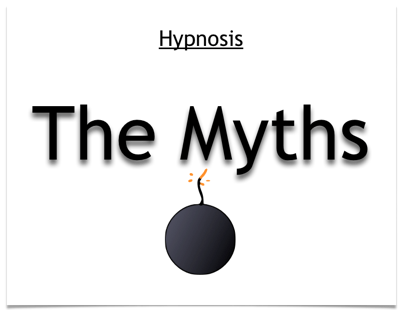
One of the most popular parts of my personal development training courses is Hypnosis. My students learn how to put themselves into a trance and also how to use hypnosis with others in order to improve the quality of that persons life.
Hypnosis unfortunately still carries with it a number of stereotypes and myths that initially lead to scepticism. Once these myths have been discussed and exploded what we are left with is a wonderfully relaxing technique the benefits of which are absolutely stunning.
Let’s have a look at some of those myths.
A hypnotist has magical powers – only in so much as he or she has the ability to make powerful suggestions to the unconscious mind. They are, however, normal human beings! You can be a hypnotist if you wish, just join us on one of our NLP courses, either in person or online.
Hypnosis can make me do things against my will – Not at all. The subject must be 100% cooperative in order for the mind to relax sufficiently and they can accept or reject the suggestion whilst under hypnosis. If a suggestion is given that upsets the subject, he or she would more than likely automatically come out of hypnosis immediately. We cannot make anyone do anything with hypnosis that they do not want to do, not even get better! – It does not overpower human consciousness.
I can’t be hypnotised – If you believe that then it will be true. Everyone who wants to be hypnotised can be hypnotised.
A hypnotised person is unconscious – Not at all true. A subject is awake and aware under hypnosis, he or she has merely focused their attention where the hypnotist directs it and is oblivious to anything else.
A person can get stuck in hypnosis – Even if the hypnotist dropped down dead in the middle of a session, the subject would come out of hypnosis easily. They may slip into a brief sleep, and then wake up normally, or they may open their eyes naturally when they had not heard from the hypnotist for some time.
Deep hypnosis is needed for good results – False. Any level of hypnosis can produce good results.
You can’t hypnotise yourself – Not true. You can hypnotise yourself and give yourself constructive suggestions.
In order to put someone in trance I need to talk in a deep gravelly voice – Untrue. Hypnotists are just as effective when they use their own voice. As long as they know what they are doing and have good rapport with the subject then it will work. Pace of speech is important as the subject needs to have time to respond to directions and the pace needs to be fast enough to maintain their attention. Dull monotony works well as the idea is to bore the subjects conscious mind to the point that it becomes inactive.
Hypnosis in fact is an extremely relaxing experience where you are in control at all times if you need to be. It is not a dark art, it is something that we all experience every day. Have you ever watched a good film and got ‘totally engrossed’ in it? If so, then you were probably in a trance, ‘entranced’ by your experience.
The power that hypnosis provides is to allow us to make suggestions to our deep unconscious whilst we are in our trance. The unconscious will respond by making sure that our whole body is aware of the suggestion made and then it sets about following the suggestion.
We use hypnosis commonly to help people lose weight, stop smoking, relax more, gain confidence, and heal physical ailments, such as chronic pain and fatigue.
We train people to use hypnosis responsibly to benefit themselves and to help others improve their lives in our NLP Training series. Either join us in the UK on one of our NLP Training Courses or train in NLP online at our NLP online training centre.
